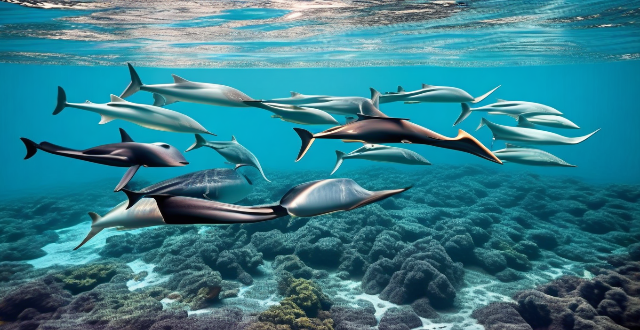Freediving and scuba diving are both popular underwater activities that allow people to explore the ocean depths, but they have significant differences. Freediving involves holding one's breath and relies on lung capacity, while scuba diving uses a pressurized gas tank for breathing. Freediving is more accessible due to minimal equipment requirements and lower costs, while scuba diving requires complex equipment and higher costs. Scuba diving allows for exploration of greater depths, while freediving is generally limited to shallower depths. Safety considerations differ between the two, with freediving potentially being riskier due to breath-hold technique and scuba diving having risks like decompression sickness and equipment failure. Environmental impact also varies, with freediving considered more eco-friendly due to minimal equipment usage. Both sports require proper training and respect for the marine environment.

The Difference between Freediving and Scuba Diving
Freediving and scuba diving are two popular underwater activities that allow people to explore the ocean depths. While both involve breathing underwater, there are significant differences between the two. Let's take a closer look at each activity and compare them.
Freediving
Freediving, also known as breath-hold diving, is a form of underwater diving where divers hold their breath and rely on their lung capacity to explore the underwater world. Here are some key characteristics of freediving:
- Breath-hold technique: Freedivers use various techniques to increase their lung capacity and reduce oxygen consumption, allowing them to stay underwater for longer periods without breathing.
- Simplicity: Freediving equipment is minimalistic, typically consisting of a mask, fins, and a snorkel. This simplicity makes it an accessible sport for many people.
- Physical endurance: Freediving requires strong lung capacity, good cardiovascular health, and excellent swimming skills. It can be physically demanding, but also offers a unique sense of freedom and connection with the underwater environment.
- Depth limitations: Due to the limitations of human lung capacity, freediving is generally limited to shallower depths compared to scuba diving. However, experienced freedivers can reach impressive depths using specialized techniques.
Scuba Diving
Scuba diving, or self-contained underwater breathing apparatus (SCUBA) diving, involves using a pressurized gas tank to breathe while exploring the underwater world. Here are some key characteristics of scuba diving:
- Breathing apparatus: Scuba divers wear a tank filled with compressed air or other gas mixtures, which allows them to breathe underwater for extended periods.
- Equipment complexity: Scuba diving requires more equipment than freediving, including a regulator, buoyancy control device (BCD), wetsuit or dry suit, and weights. This complexity requires proper training and certification.
- Depth capabilities: Scuba diving allows divers to explore much greater depths than freediving due to the use of pressurized gas tanks. Divers can stay down longer and go deeper than they could on a single breath.
- Training requirements: Scuba diving requires extensive training and certification from recognized organizations like PADI or NAUI. Divers must learn about safety procedures, equipment usage, and dive planning.
Comparing Freediving and Scuba Diving
Now that we have looked at each activity individually, let's compare them based on several factors:
Accessibility
- Freediving: More accessible due to minimal equipment requirements and lower costs.
- Scuba Diving: Less accessible due to complex equipment and higher costs.
Depth Capabilities
- Freediving: Limited by human lung capacity; generally suitable for shallower depths.
- Scuba Diving: Allows for exploration of greater depths due to pressurized gas tanks.
Safety Considerations
- Freediving: Can be riskier due to breath-hold technique and potential for blackout or shallow water blackout (SWB). Proper training and safety precautions are essential.
- Scuba Diving: Risks include decompression sickness (DCS), nitrogen narcosis, and equipment failure. Strict adherence to safety guidelines and proper training are crucial.
Environmental Impact
- Freediving: Generally considered more eco-friendly due to minimal equipment and no exhaust fumes from scuba tanks.
- Scuba Diving: Can have a greater environmental impact due to increased equipment usage and potential damage caused by divers who lack awareness or proper training.
In conclusion, freediving and scuba diving offer different experiences and cater to different preferences in terms of accessibility, depth capabilities, safety considerations, and environmental impact. Both sports provide unique opportunities for underwater exploration and require proper training and respect for the marine environment.